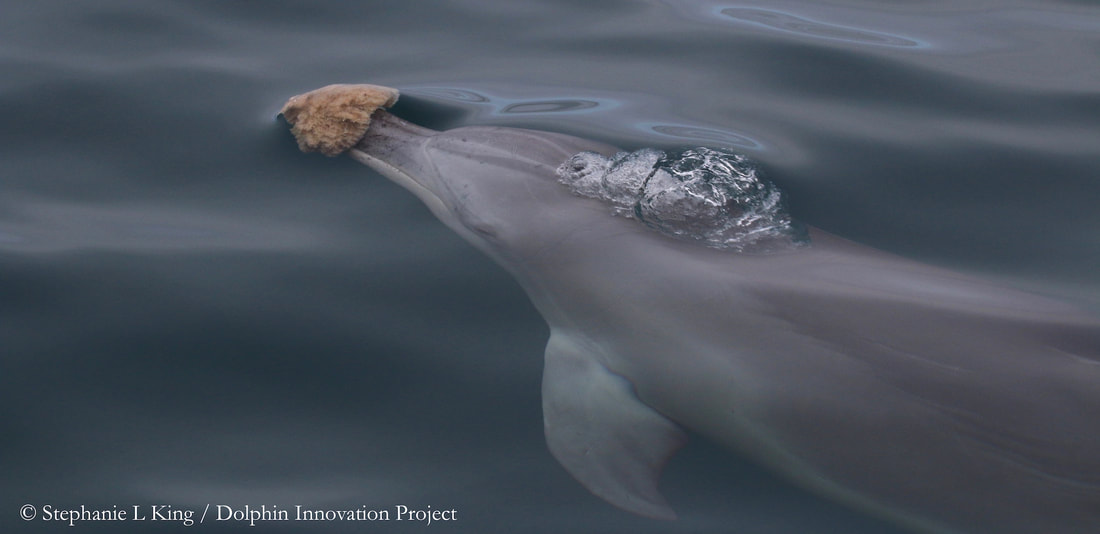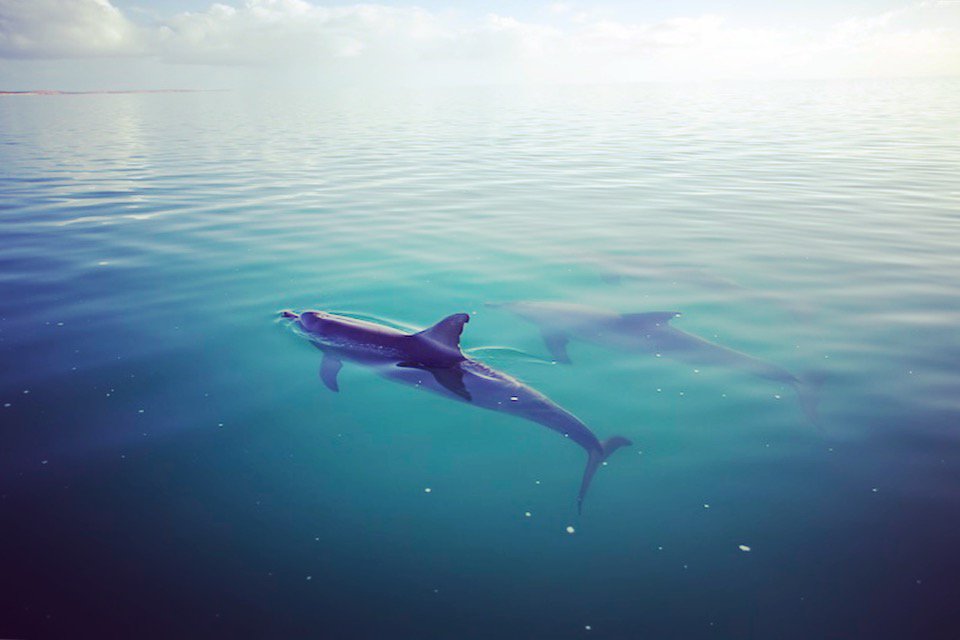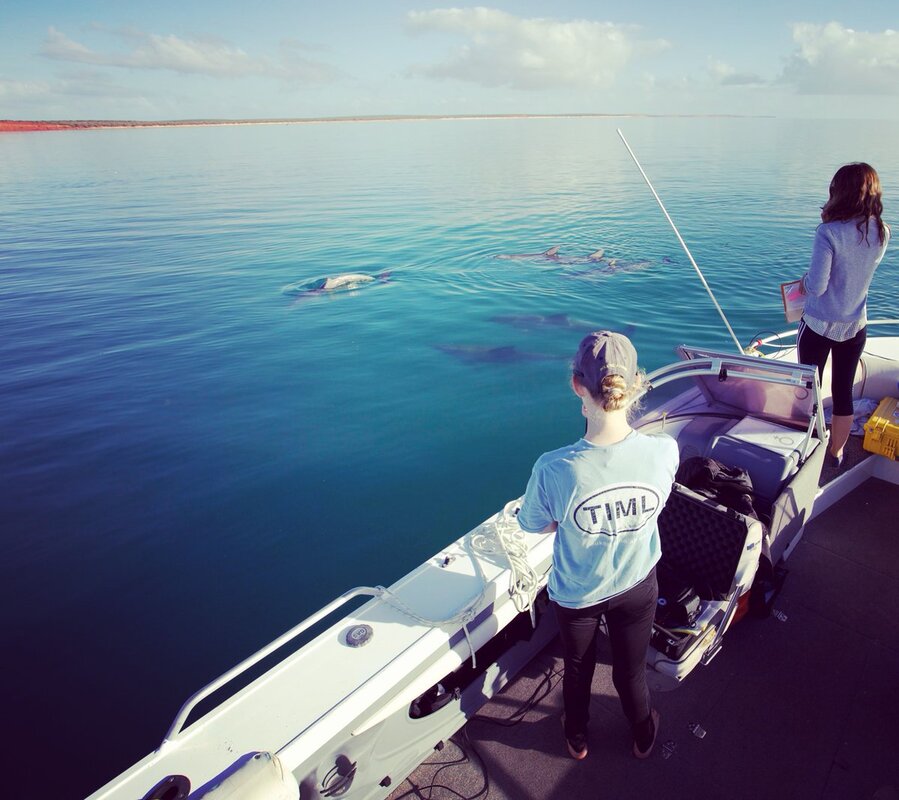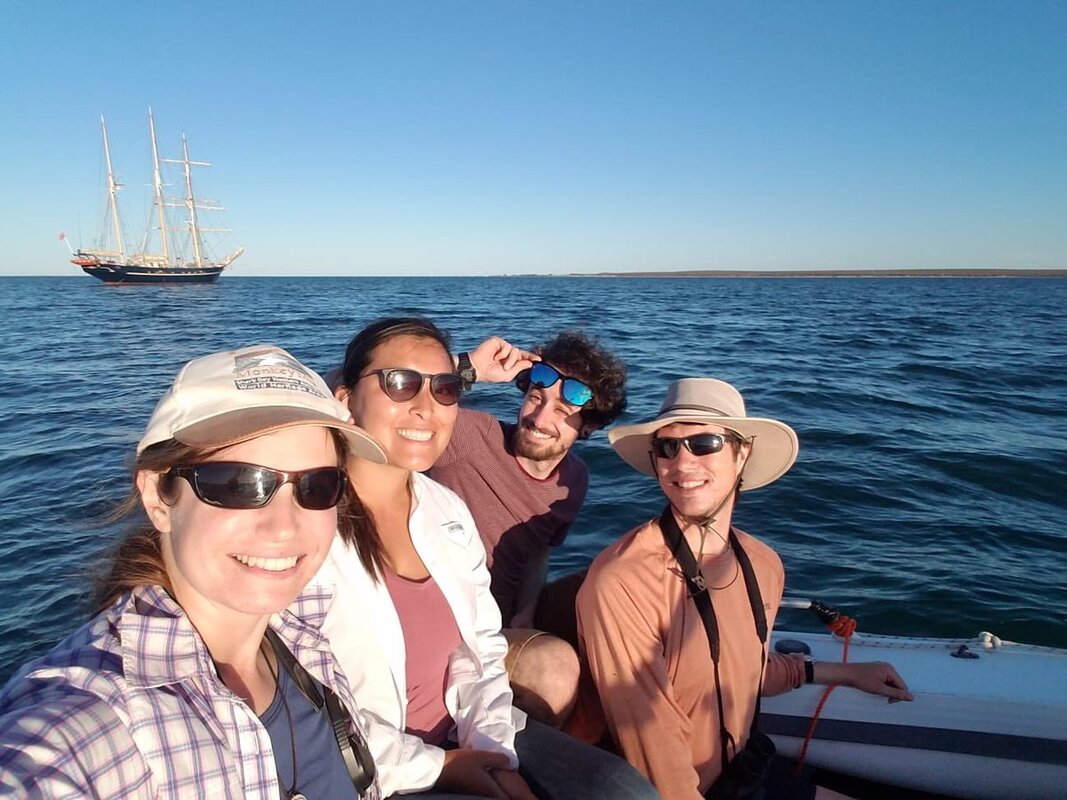|
Highlights: Diving into the behaviour of male dolphins that engage in tool-use for the first time and comparing them to non-tool-using males, we found that:
Please see full blog on our Shark Bay website: http://www.sharkbaydolphins.org/latest-news/ Title: Tool use and social homophily among male bottlenose dolphins. Authors: Bizzozzero MR, Allen SJ, Gerber L, Wild S, King SL, Connor RC, Friedman WR, Wittwer S, Krützen M. Abstract: Homophilous behaviour plays a central role in the formation of human friendships. Individuals form social ties with others that show similar phenotypic traits, independently of relatedness. Evidence of such homophily can be found in bottlenose dolphins (Tursiops aduncus) in Shark Bay, Western Australia, where females that use marine sponges as foraging tools often associate with other females that use sponges. ‘Sponging’ is a socially learned, time-consuming behaviour, transmitted from mother to calf. Previous research illustrated a strong female bias in adopting this technique. The lower propensity for males to engage in sponging may be due to its incompatibility with adult male-specific behaviours, particularly the formation of multi-level alliances. However, the link between sponging and male behaviour has never been formally tested. Here, we show that male spongers associated significantly more often with other male spongers irrespective of their level of relatedness. Male spongers spent significantly more time foraging, and less time resting and travelling, than did male non-spongers. Interestingly, we found no difference in time spent socializing. Our study provides novel insights into the relationship between tool use and activity budgets of male dolphins, and indicates social homophily in the second-order alliance composition of tool-using bottlenose dolphins.
4 Comments
Big thanks to National Geographic for our new grant and for allowing me to remain a Nat Geo Explorer! Stay tuned for updates on our project exploring cooperative-partner preference in allied male bottlenose dolphins #sharkbay @InsideNatGeo Our 2019 field season has kicked off with PhD student @KathrynGHolmes1 project on the ontogeny of alliance formation in juvenile male dolphins. Our team will be here from May through November documenting dolphin alliance behaviour and we are looking forward to another exciting year of research in Shark Bay! |
Archives
March 2023
Categories |




 RSS Feed
RSS Feed